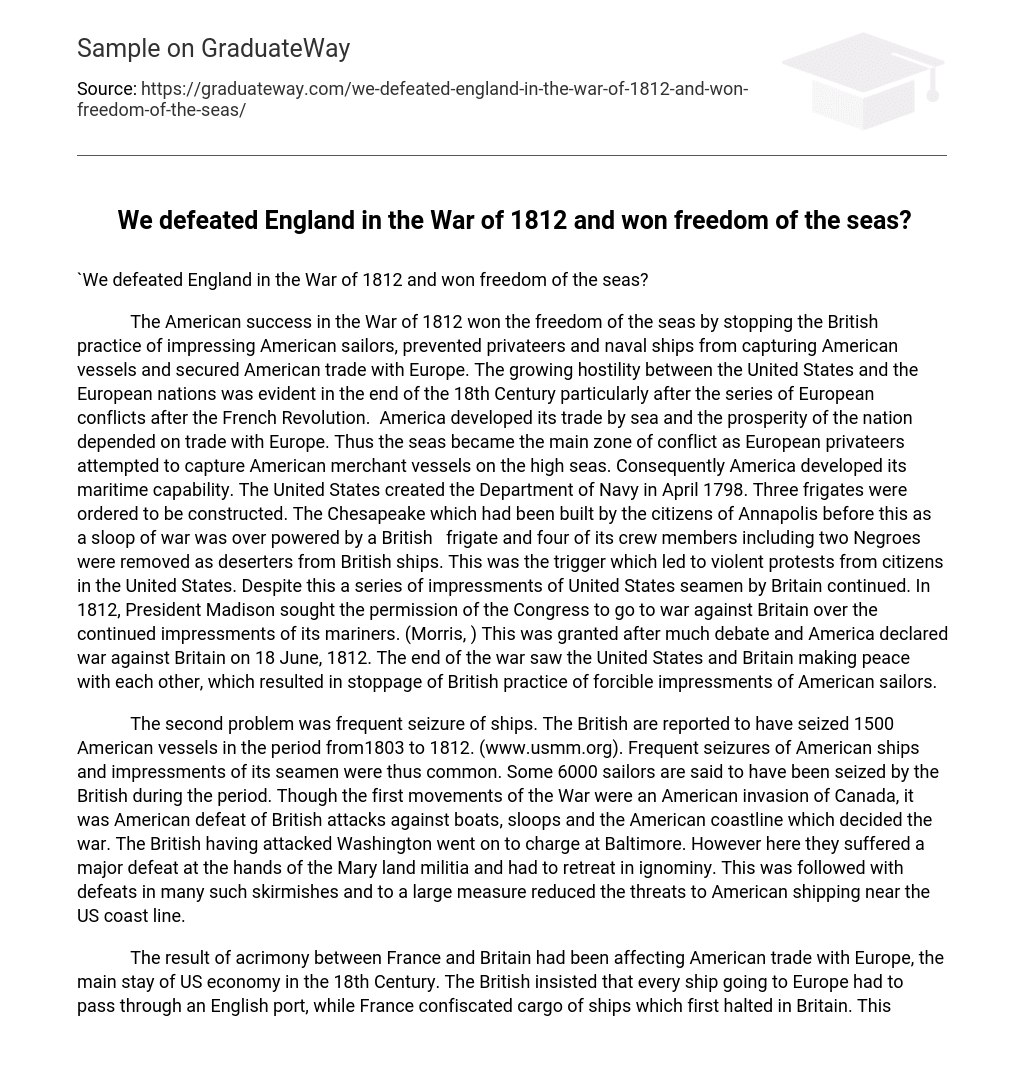The American success in the War of 1812 won the freedom of the seas by stopping the British practice of impressing American sailors, prevented privateers and naval ships from capturing American vessels and secured American trade with Europe. The growing hostility between the United States and the European nations was evident in the end of the 18th Century particularly after the series of European conflicts after the French Revolution.
America developed its trade by sea and the prosperity of the nation depended on trade with Europe. Thus the seas became the main zone of conflict as European privateers attempted to capture American merchant vessels on the high seas. Consequently America developed its maritime capability. The United States created the Department of Navy in April 1798. Three frigates were ordered to be constructed. The Chesapeake which had been built by the citizens of Annapolis before this as a sloop of war was over powered by a British frigate and four of its crew members including two Negroes were removed as deserters from British ships. This was the trigger which led to violent protests from citizens in the United States.
Despite this a series of impressments of United States seamen by Britain continued. In 1812, President Madison sought the permission of the Congress to go to war against Britain over the continued impressments of its mariners. (Morris, ) This was granted after much debate and America declared war against Britain on 18 June, 1812. The end of the war saw the United States and Britain making peace with each other, which resulted in stoppage of British practice of forcible impressments of American sailors.
The second problem was frequent seizure of ships. The British are reported to have seized 1500 American vessels in the period from1803 to 1812. (www.usmm.org). Frequent seizures of American ships and impressments of its seamen were thus common. Some 6000 sailors are said to have been seized by the British during the period. Though the first movements of the War were an American invasion of Canada, it was American defeat of British attacks against boats, sloops and the American coastline which decided the war.
The British having attacked Washington went on to charge at Baltimore. However here they suffered a major defeat at the hands of the Mary land militia and had to retreat in ignominy. This was followed with defeats in many such skirmishes and to a large measure reduced the threats to American shipping near the US coast line.
The result of acrimony between France and Britain had been affecting American trade with Europe, the main stay of US economy in the 18th Century. The British insisted that every ship going to Europe had to pass through an English port, while France confiscated cargo of ships which first halted in Britain. This affected American trade adversely as US ships became the most vulnerable given the size of American trade with Europe.
Once the British defeated the French at Trafalgar, their domination over the seas was total, resulting in further subjection of US ships. However after the War of 1812, the Americans succeeded in negating this British advantage, thereby enabling free trade between America and Europe. Thus by defeating Britain in 1812, America gained freedom of the seas.
References
- Morris, Richard B. 1961 The War of 1812. Danbury. Franklin Watts.
- American Merchant Marine and Privateers in War of 1812. http://www.usmm.org/warof1812.html (11 November 2006).





